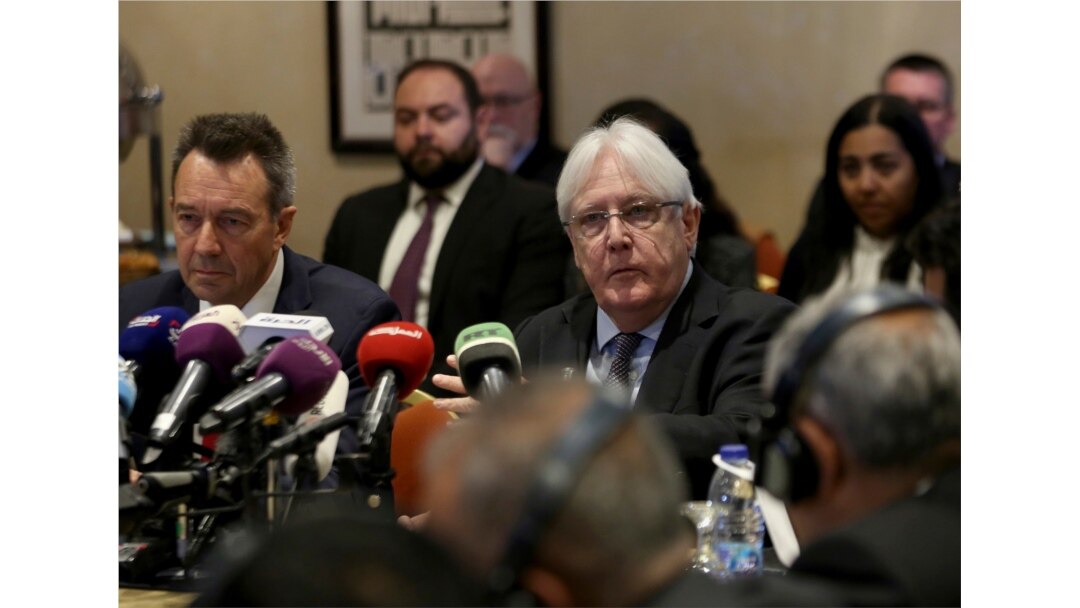International parties are welcoming news that the Yemen government, backed by a Saudi-led military coalition, and Iranian-allied Houthi rebels have reached a deal on the first large-scale prisoner exchange since the start of the five-year conflict in Yemen. The agreement was reached after a week of negotiations in the Jordanian capital, Amman. Citing its neutrality, the International Committee of the Red Cross says it has facilitated the agreement, but it cannot disclose the number of prisoners to be released or the timing involved.
The United Nations mission in Yemen announced that the warring sides in the agreed to "immediately begin exchanging lists for the upcoming release" of prisoners, calling it the "first official large-scale" exchange of its kind since the beginning of the long-running conflict in Yemen.

United Nations Special Envoy to Yemen Martin Griffiths, center, and President of the International Committee of the Red Cross Peter Maurer, participate in a new round of talks by Yemen's warring parties in Amman, Jordan, Feb. 5, 2020.
"The parties showed us that even with the growing challenges on the ground, the confidence they have been building can still yield positive results," said Martin Griffiths, U.N. special envoy for Yemen.
The breakthrough came despite continued heavy fighting over the weekend, including the shooting down of a Saudi helicopter by Houthi rebels and retaliatory air raids by the Saudi-led military coalition that killed about 30 civilians.
Prisoner swaps stalled
Prisoner swaps were meant take place earlier following the December 2018 Stockholm Agreement. But the tentative peace plan stumbled amid ongoing military offensives and a deep-seated distrust between the two sides.
Still, Fareed al-Homaid, spokesman for the International Committee of the Red Cross Yemen, called this deal “a great step forward.” Speaking to VOA from the capital Sana’a, al- Homaid said, however, the ICRC already engaged both sides to carry out prisoner exchanges involving more than 485 people outside of the Stockholm Agreement.
"Between the period April 2019 and Feb 2020, there were several release operations by the parties outside of the Stockholm Agreement. We facilitated those operations. We are happy that although the conduct of hostilities is still ongoing in Yemen, the parties are trying to put more emphasis on the humanitarian needs through these releases," he said.
People stand at the site of a Houthi ballistic missile attack over the populated district of Rawda in Marib, Yemen, Feb. 6, 2020.
Al Homaid said the ICRC and the United Nations hope the warring sides will honor the commitment they just made because if it succeeds, it could perhaps herald the start to the end the conflict which has witnessed thousands of people killed.
"It will just pave the way for further releases which will lead to a peace process which — inshallah — will end the conflict. The only way to have this suffering of Yemenis reach an end is peace, other than this we will just continue going through this horrible situation," he said.
The number of casualties from Yemen’s devastating conflict are staggering. The United Nations has verified at least 7,500 civilians have died by last September. But other monitors, such as the U.S.-based Armed Conflict Location and Event Data Project, have registered more than 100,000 deaths, including those of 12,000 civilians killed in direct attacks.
Analysts say thousands more Yemeni civilians have died from disease, malnutrition, and poor health due to hospital bombings and a lack of medicines.


